Although English has risen to be a common medium of communication in Vietnam, it’s still a little bit difficult to get by without knowing a word of Vietnamese. Having some basic Vietnamese words and phrases memorized will definitely help cut down misunderstandings and frustrations, thereby giving you a more fascinating insight into Vietnamese culture.
We have listed some of the most necessary words and phrases to help you learn how to meet and greet people, how to order food in Vietnamese restaurants, how to get directions, and everything in between. It is always a good idea to learn a few more new things, besides, proper preparation makes for good travels!
Contents
A Look Into Vietnamese Language History
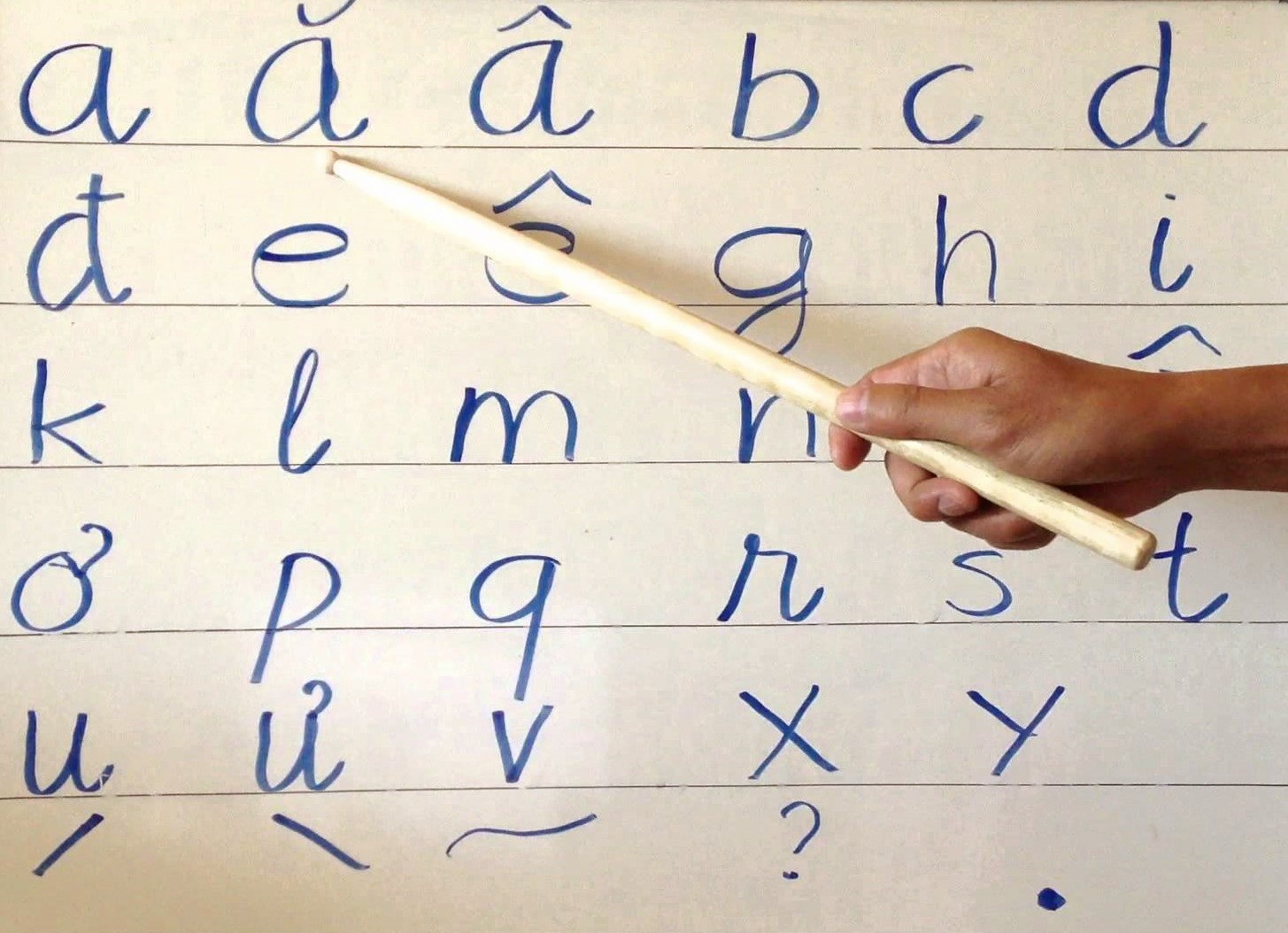
In the beginning of the Vietnamese language, the Vietnamese adopted Han characters as a result of Chinese pervasion. Not until the 13th century did the Vietnamese start developing their own written language, namely Nom, as a way to affirm their cultural identity. In the 17th century, as missionaries entered the country, the Vietnamese language underwent the most important phase of transformation. It was turned into the Romanized form, Quoc Ngu. Even though this language has such an interesting history, the most special thing about Vietnamese is that it has six different tones created by diacritics.
Nowadays, due to Vietnam’s huge population and emigration, there are millions of Vietnamese speakers living all over the world.
Daily Conversation
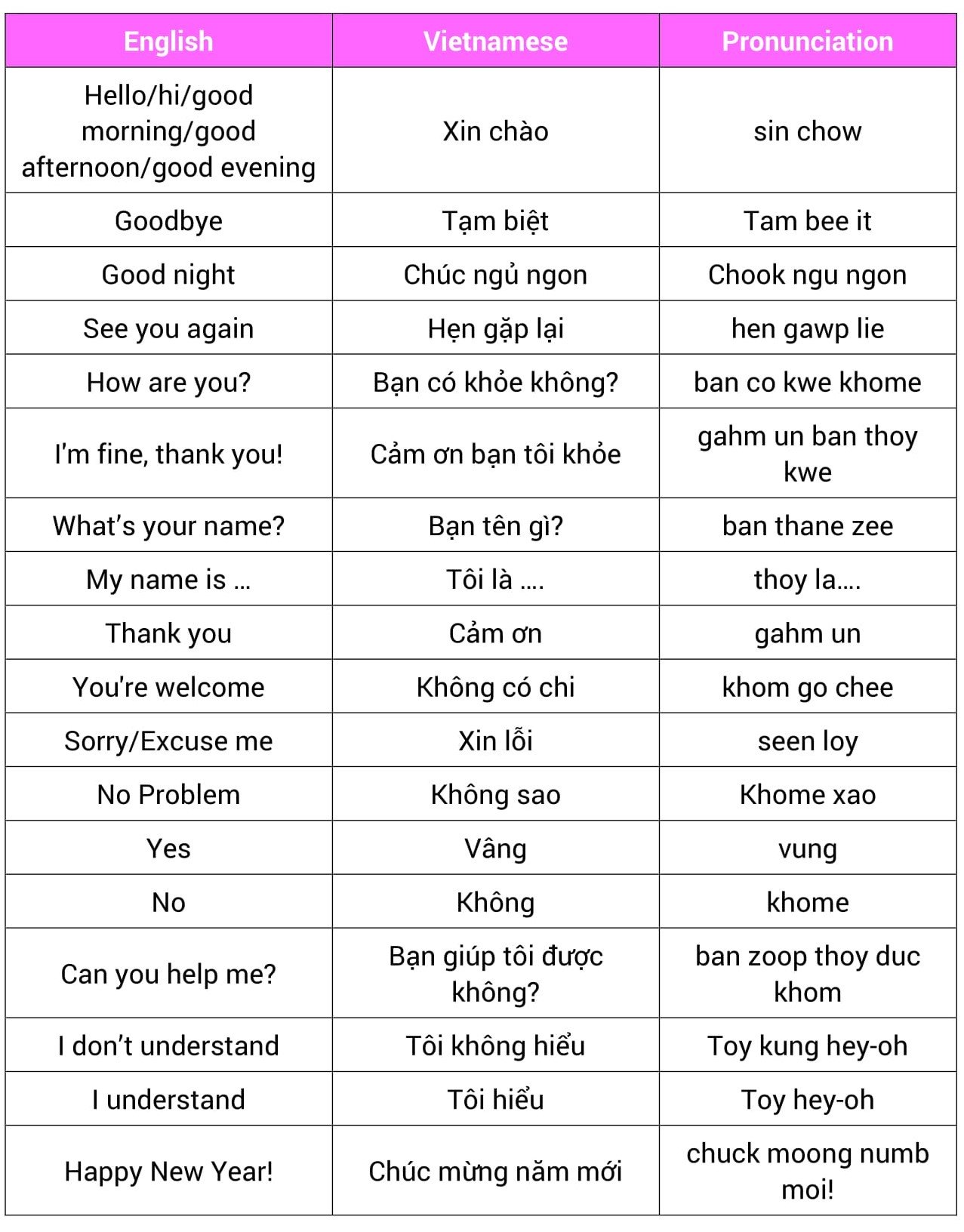
Vietnamese people are very hospitable and love to talk to foreigners no matter the conversation. Remember to be polite and give them a friendly smile. Chances are, you will make some great new friends. Below are the most basic phrases and sentences you may encounter in everyday life.
Travelling & Directions
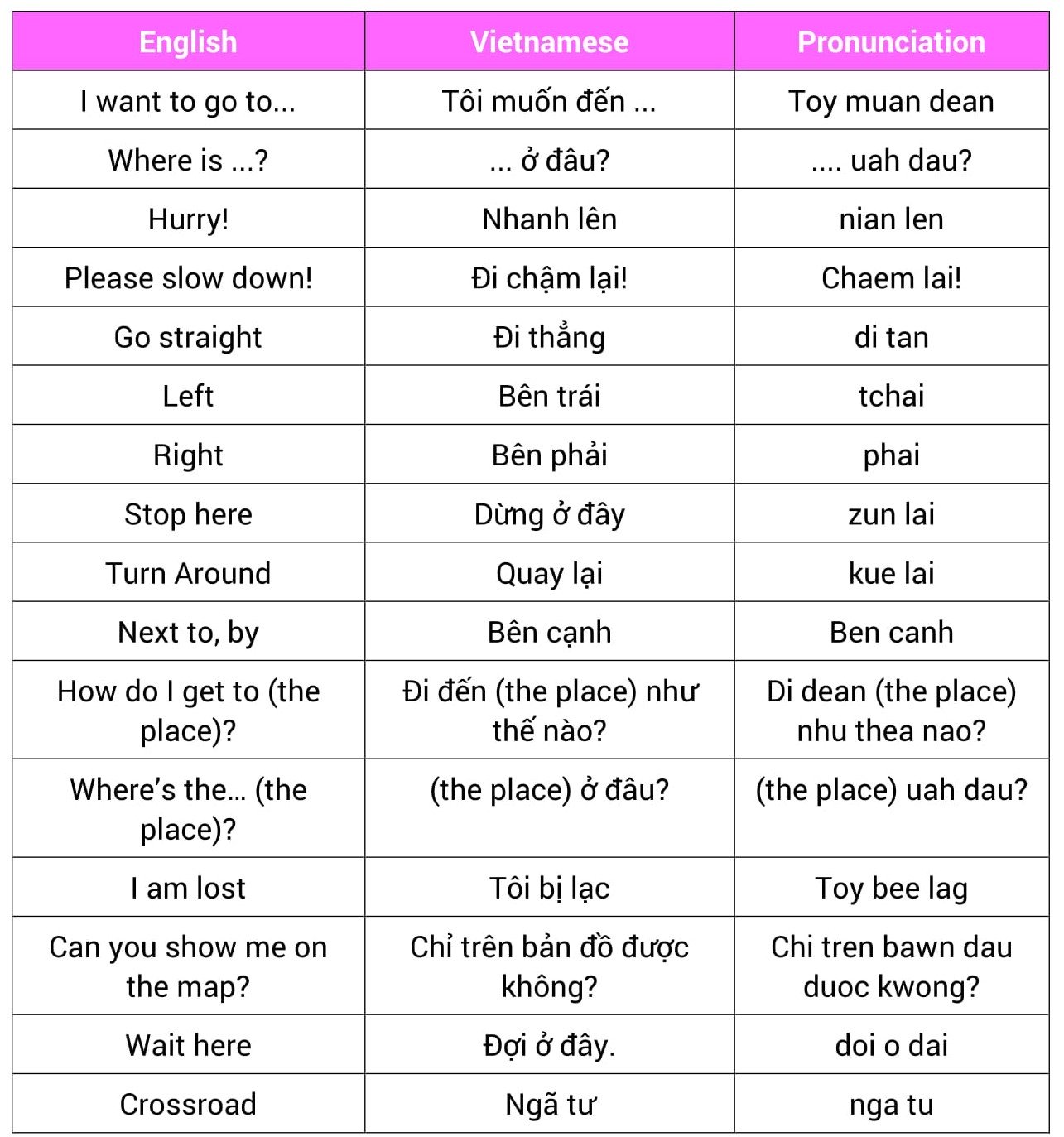
Saigon streets are maze-like, and taxis or motorbike taxis are definitely indispensable for first-time visitors when it comes to getting around. But the problem here is that most drivers know only a little bit of English, so equipping yourself with some traveling vocab is a safer bet – you will be much better prepared to deal with the complexities of traveling within Vietnam. It will minimize your chances of getting lost and ensure your safety.
However, it’s always a good idea to bring a map and write down the address you’re going to on a piece of paper, just in case. Also, don’t forget to check out our Rules Of The Road: How To Win At The Game Of Saigon Traffic.
Shopping
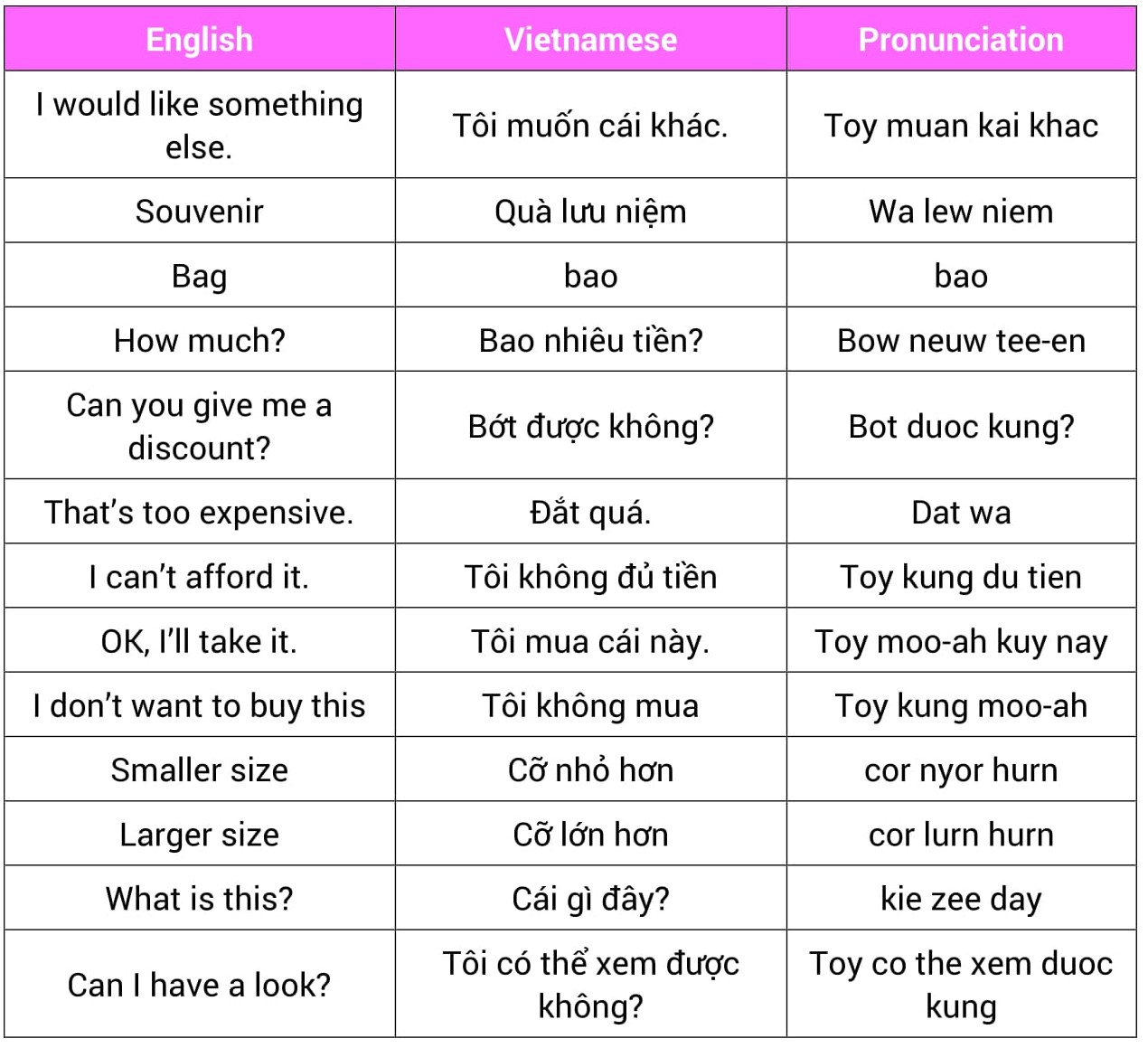
Flea market bargain hunters and shopaholics love Vietnam because this country is truly a shopping paradise. You’ll fall in love with the wide variety of commodities and insanely tempting prices. With a few Vietnamese words, your shopping spree should be smooth and trouble-free.
Also, we have a list of great places where you can literally get anything you want.
Read more: The Ultimate Guide to Shopping in Saigon
Dining & Ordering Food
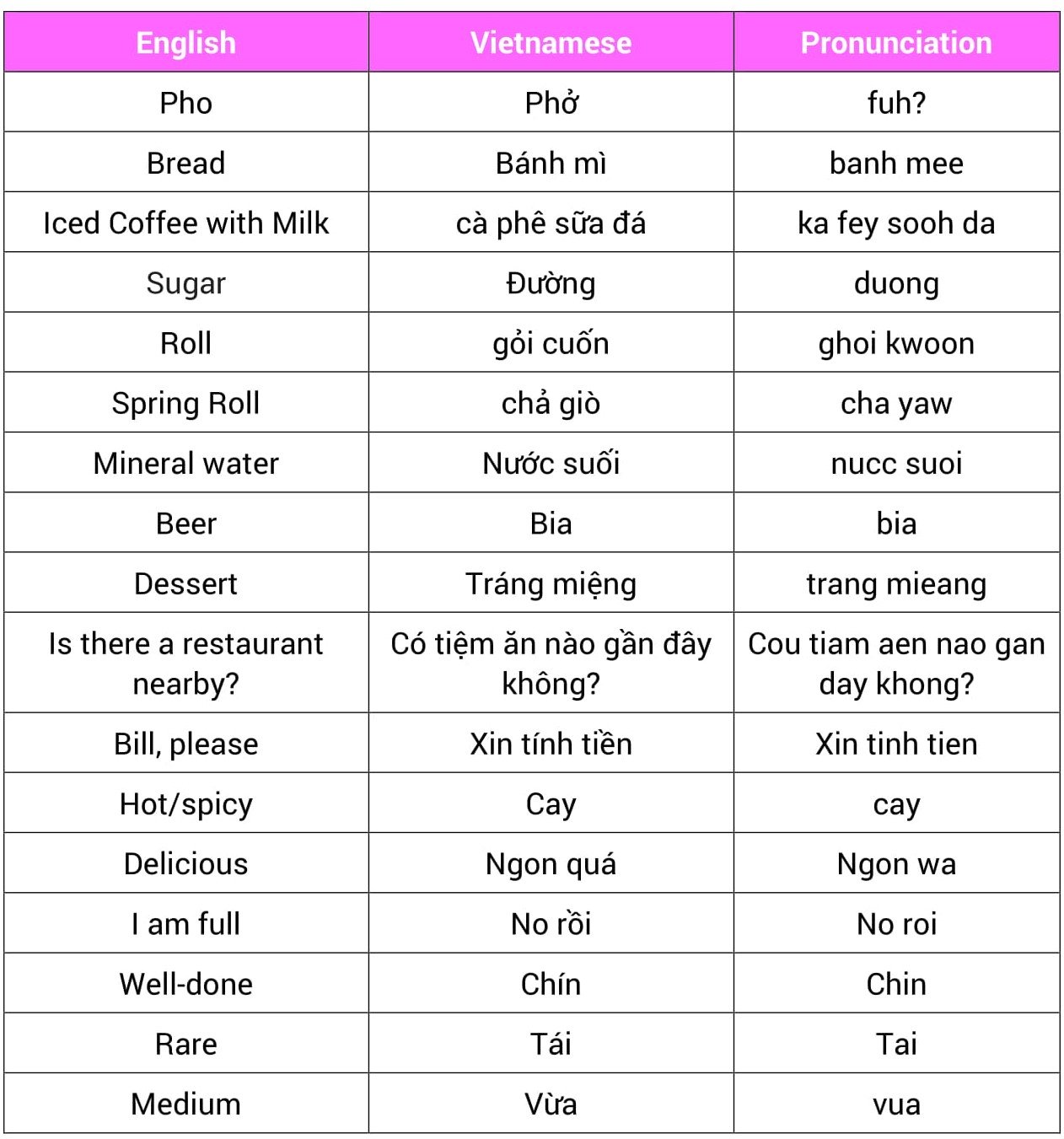
Vietnamese culinary culture is undeniably one of the country’s highlights. Insanely cheap and unimaginably flavorful, a food adventure deserves a high place on your to-do list. Therefore, learn a few common phrases so you won’t get caught up in awkward and embarrassing situations when eating out.
Practice your Vietnamese in any of the restaurants detailed in these following articles. Bun rieu, bo kho, oc (sea snails).
Numbers, Dates & Times
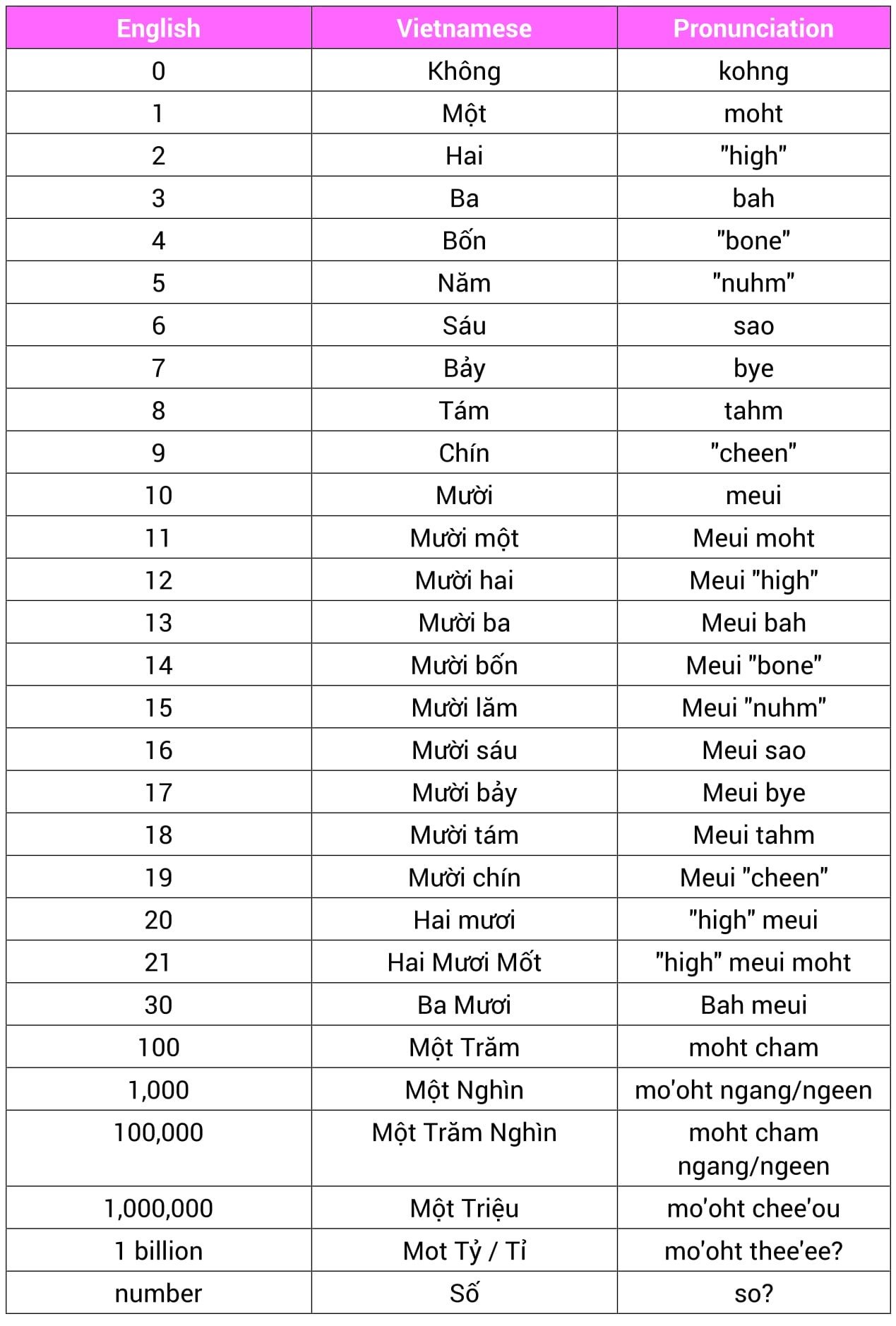
It’s crucial to know how to pronounce numbers, dates, and times in Vietnamese as they are used intensively in everyday conversation. Vietnamese numbers are quite easy to follow once you learn the rules of how they’re structured. Higher numbers are comprised of the same words as the lower numbers, which means if you master how to count from one to ten, the rest should fall into place.
Days of the Week
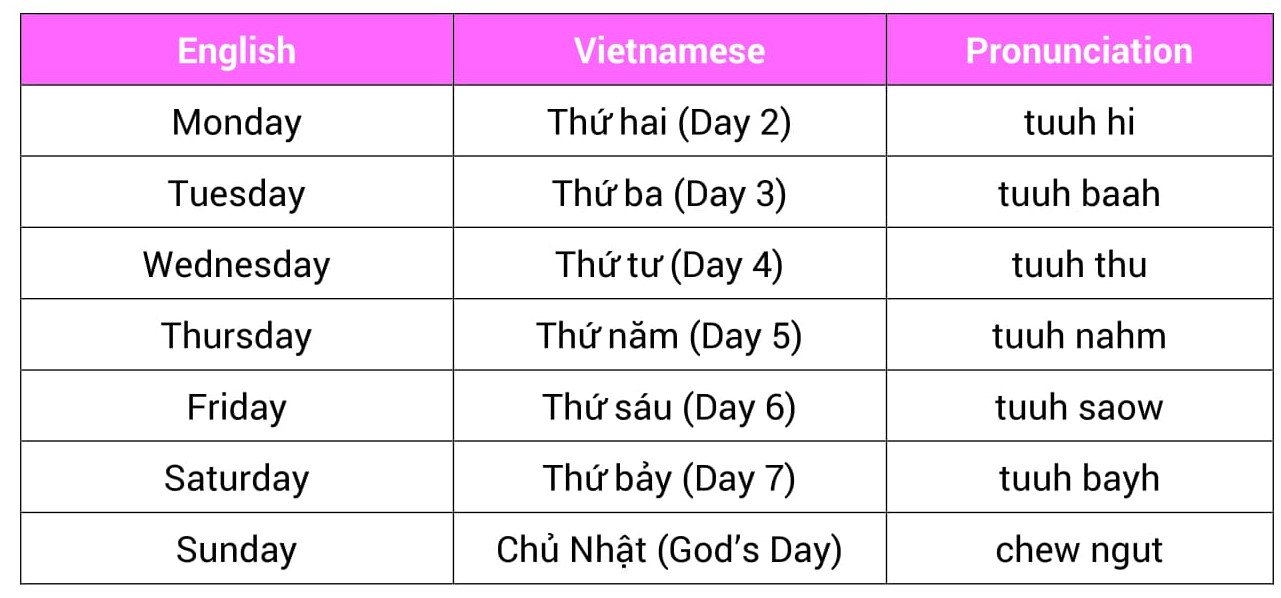
This is even easier once you got the hang of numbers in Vietnamese because the days are named after numbers in ascending order starting from number two (hai). Except for Sunday though!
Time
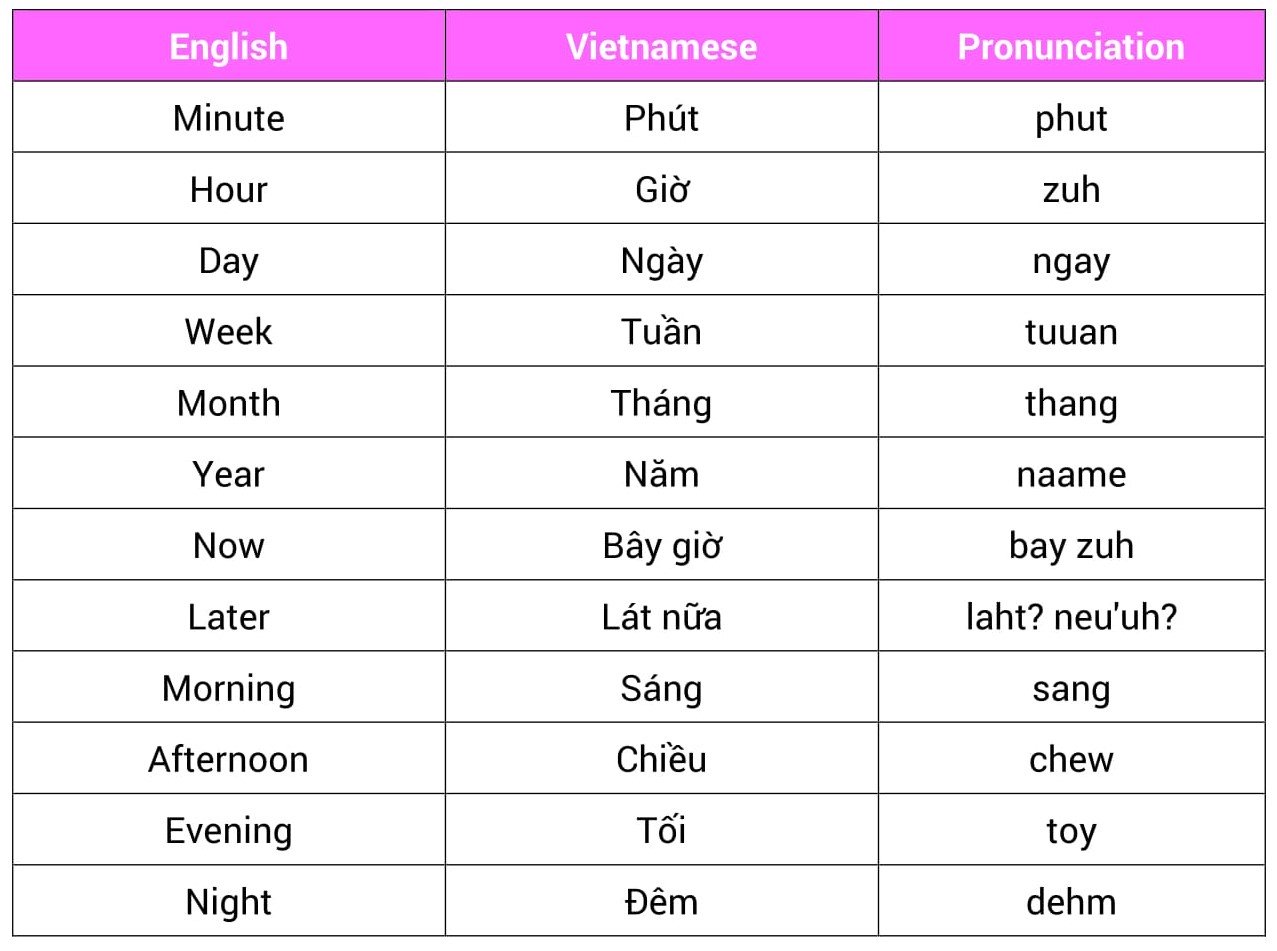
Regularly Used Terms
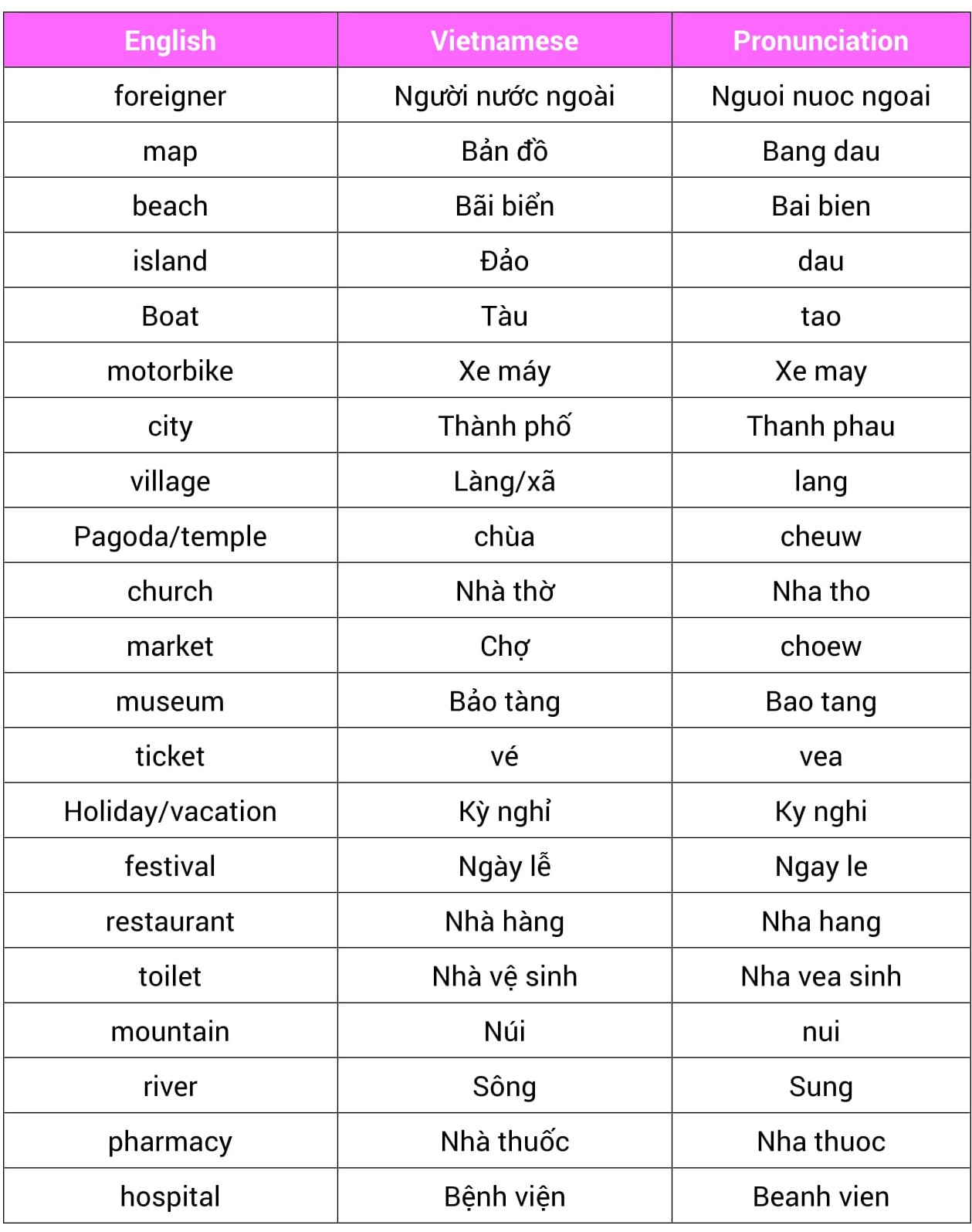
Some extra vocab to surprise your Vietnamese friends.
A Few Tips
Tone matters too
Vietnamese is actually a highly tonal, inflected language. The same word with different vocal tone (higher or lower) will drastically change the meaning. So be careful or else you may say something offensive to the locals.
Get a teacher or take a Vietnamese course
If you’re really serious about learning Vietnamese, taking a language class is advised. It’s best to begin learning the language at least a year prior to your trip. If you don’t find it THAT necessary, there will also be other options, for example, online courses. These can walk you through the proper grammatical and pronunciation lessons without a big price tag or long hours of practice. Online apps are a great alternative too as they provide you with functional words and sentences for work, travel, and basic conversation. Every travel connoisseur agrees that being educated and well-prepared is an essential part of enjoying traveling abroad so learn as much as possible before heading out.
The art of pointing and being patient
Don’t underestimate the power of body language – it works in many situations! Take a look at Vietnamese communication signs and body language here. And again trust me, Vietnamese people are extremely amiable and willing to overcome any language barrier to give you the most enjoyable experience while you’re in their country.
Be confident
Although you don’t know much about the language, consider this a great opportunity for you to explore an exotic culture. Don’t be afraid to make mistakes, just be more open to asking for help and learning from others. Discuss prices with the market vendors, speak to your Grab drivers, communicate with a stranger on the street – and you will understand why traveling is a great way to get to know the world, and therefore yourself.
Master these phrases and words and you’ll soon find Vietnam a lovely place to stick around for a while. We hope you make the most of your time here in Vietnam! Let us know if you mastered your pronunciation or effectively bargained down an item in a local market in the comments below!
